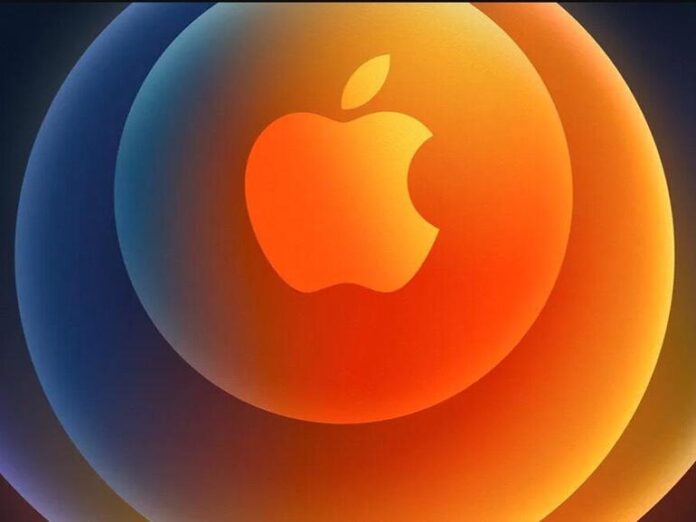History won’t remember 2020 fondly. While Apple weathered the year well, the company experienced some notable troubles. Erik Eckel explores Apple’s worst moments of the year.
A pandemic, social unrest, economic recession, and political discord all contributed to a difficult year. While Apple earned several wins, including important new operating system releases, a 5G-compatible iPhone launch, and record revenues, the company also suffered multiple worrisome incidents. Here are Apple’s five worst 2020 moments.
5. Mac performance problems rained on macOS Big Sur’s parade
Of all times to experience performance hiccups, on a November day when the focus was to have been on the macOS Big Sur release, Apple users complained in droves their Macs were inexplicably slowing. Particularly vexing was that slowdowns were also reported by users running older macOSes.
Was the problem occurring because of high demand for the new release? Or was another issue to blame? The unwanted snag stole attention from Apple’s new macOS update, and the resulting confusion tainted Big Sur’s rollout.
Ultimately, as TechRepublic contributing writer Jonathan Greig explains in Security experts level criticism at Apple after Big Sur launch issues, the trouble was traced to individual applications’ security certificates being checked via a process involving a failed Apple Online Certificate Status Protocol (OCSP) server. The news subsequently triggered a debate about the practices Apple’s adopting in attempts to protect users from malware. Not a fine moment by anyone’s measure.
4. The great Fortnite dustup
Epic Games’ Fortnite, a wildly popular game good for honing competitive clan strategies or simply relaxing, depending on your perspective, has become the potentially surprising leader in a rebellion against Apple’s App Store policies and its corresponding development program and license agreement. In dispute is Apple’s policy of receiving 30% of App Store sales and Epic Games’ offering in-app purchases of V-Bucks—the rough equivalent of Fortnite currency.

Originally launched as “Fortnite: Save the World,” a popular console and computer game in 2017, the franchise eventually launched the breakout spin-off hit “Fornite Battle Royal.” Fortnite proved once-and-for-all that the smartphone is a powerful gaming platform for much more than just puzzles and word games.
Image: Epic Games
Epic Games argues the move saves its customers money. Apple, in a now-famous August letter, threatened to eject the game from its platform. The warning proved no mere negotiation strategy when Apple subsequently removed Fortnite, from the App Store, then every other Epic Games app, too, later that month.
Although Apple offered an olive branch in mid-November by offering to reduce fees 15%, the company only extended the discount to smaller programming houses earning less than $1 million in annual App Store sales. The move won’t prove sufficient keeping angry developers and antitrust hounds at bay. I suspect this story will continue, and likely become even nastier, in 2021.
3. M1 chip software worries
Not all is doom and gloom in Apple’s world, of course. The company announced its new M1 CPU in November. The new processor gives Apple more control over Mac system architecture, performance, heat generation, and battery life. Thanks to the new Apple Silicon, so-equipped Macs can now run iPad and iPhone apps, too. Those are all important elements that assist and encourage customer satisfaction, sales and profit.
But there’s one problem. While many iOS and iPadOS apps do work well on M1-powered Macs, not all apps are available or work on the new computers. The Macs have no touch screens. Some re-programming might be required to accommodate the Mac’s mouse and keyboard, as a result. And not all developers have had time to or even determine whether they will make the necessary adjustments.
In the interim, Apple is labeling unverified apps accordingly. Over time, the problem will resolve itself.
There’s more, though. Potential trouble also exists with traditional Intel-powered apps working properly on the new M1-powered Apple computers. Apple claims its Rosetta 2 conversion technology permits those programs to work correctly. But software and hardware interactions frequently prove complex. Incompatibilities sometimes arise, and potential unwanted occasional glitches shouldn’t surprise anyone, especially considering how quickly Apple’s introduced these new Macs powered by its own silicon.

Apple’s 2020 M1 MacBook Air, MacBook Pro, and Mac mini.
Apple Inc.
Encouragingly, initial reports suggest Rosetta 2 is performing well. In some cases, older apps may even run faster on M1-powered Macs. So while the issue deserves recognition, I don’t recommend letting any such concerns dissuade you from purchasing a new Apple Silicon-powered Mac.
My own iMac is a few generations old. Were a new M1-powered iMac available, I’d purchase a replacement today. I just wouldn’t be dissatisfied if some of the iPad and iPhone apps I’ve collected over time proved unavailable or incompatible.
2. Anti-competitive accusations
There’s no denying antitrust concerns, similar to those that surfaced in 1998 due to Microsoft’s dominance, are now targeting other Big Tech companies. Worse for Apple, the creative firm long celebrated for thinking differently is actually one of those companies.
The Fortnite debacle (see item four above) is but one example. In a 400-page report produced at the conclusion of a 16-month investigation in October, the US House Judiciary Subcommittee on Antitrust equated Apple and others with the “oil barons and railroad tycoons” of past monopolistic eras.
Obviously, that’s bad press. And it’s a story that will continue proving problematic for Apple in 2021 as competitors and developers dependent on Apple’s infrastructure continue agitating for what they view as a fairer share of the pie Apple’s baked.
Whether allegations Apple is engaging in anticompetitive behaviors requiring changes to US antitrust law to correct are true, as the report claims, the company will subsequently invest energy and resources protecting its interests. Whenever having to direct time and funds to such initiatives, those resources become unavailable for research and development, product innovation, and acquisitions. It’s for that reason I believe these anticompetitive claims constitute one of Apple’s bigger issues of 2020.
1. COVID-19 forced retail closings
Some things in life you never expect. I never anticipated being unable to attend an in-person meeting with coworkers for months or being able to take a quick trip to my local
Apple Store
to pick up a new iPhone, Mac or accessory, all actual required purchases for me this year after the COVID-19 pandemic struck. But that’s just where we all found ourselves beginning this past winter.
Despite the mind-numbing details planned for each Apple Store—from the Casone-quarried Pietra Serena-sandstone flooring imported from Italy to custom solid-maple tables—these locations serve as critical retail, training and customer relationship-building sites. Business professionals frequently depend on these stores for their needs, as well. Yet, Apple was forced to close its stores in an unprecedented move that proved disruptive, inconvenient and, frankly, scary due to the closings’ necessity.
Everyone has their own unique moment as to when they realized, with sartorial intensity, just how real and impactful the pandemic was going to be. For some it was hearing NBA and NHL games were being canceled. For others it was an even more personal occurrence, such as bare supermarket shelves or their businesses having to close. Extended Apple Store closures earn a spot on that dubious list. Certainly, I found the news deflating, just as I was encouraged to hear when they re-opened, and then subsequently disappointed to hear the local Apple Store was again closing.
Make no mistake, though. This worst moment does not and should not reflect on Apple. Any such conclusion is a delusion.
Apple’s been at the forefront of protecting employees, parcel delivery drivers, and customers from an incredibly contagious virus that’s killed hundreds of thousands worldwide. Apple is stridently maintaining compliance with local regulations and requiring (and providing) face masks, conducting touchless temperature checks, limiting store occupancy and enforcing physical distancing in the stores it does re-open. If only all organizations could prove so proactive.
No one I know is enjoying the pandemic’s disruption, the inability to attend a training session or receive assistance at an Apple Store or the need to await online purchase deliveries due to Apple Stores being closed. But the closures are a necessary, if temporary, disruption to our lives. Here’s hoping 2021 proves much better for everyone.




